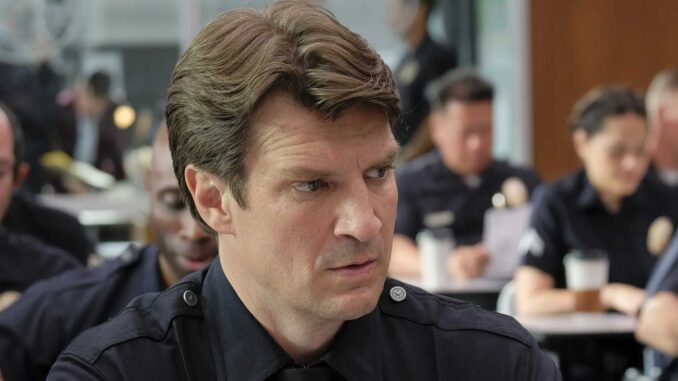
The Thin Blue Line and Thickened Plots: Why "Southland" Still Outshines "The Rookie" a Decade Later
The shimmering allure of procedural dramas is undeniable. We crave the predictable rhythm of crime, investigation, and resolution, finding comfort in the narrative closure even as the real world often offers none. In recent years, ABC's "The Rookie" has carved out a comfortable niche, offering a sanitized, optimistic take on police work, viewed through the wide-eyed idealism of its middle-aged protagonist. But a decade ago, another ABC cop show, relegated to a Friday night graveyard slot and ultimately canceled, painted a far grittier, more nuanced, and ultimately more impactful portrait of law enforcement: "Southland." While "The Rookie" aims for heartwarming accessibility, "Southland" aimed for something far more challenging: brutal honesty, and that’s why, even now, it remains a superior and underrated achievement.
"The Rookie" operates within a classic framework. John Nolan, the charmingly naive new recruit, embodies the audience's idealized view of police work. He encounters situations, learns lessons, and emerges, episode after episode, a slightly better, slightly more seasoned officer. The show is designed for escapism, offering a polished, almost sanitized version of Los Angeles. The crimes are often outlandish, the villains cartoonish, and the consequences rarely linger. While the show does touch upon heavier themes, they are often handled with a light touch, glossing over the complexities and ambiguities that permeate the reality of policing.
"Southland," on the other hand, plunges the viewer headfirst into the concrete jungle of Los Angeles. From the opening credits, which feature a frenetic, almost documentary-style montage of the city's underbelly, the show announces its intention to be different. There are no gleaming sets, no carefully crafted lighting. Instead, we are presented with a raw, unflinching look at the streets, the grime, and the desperation that define certain corners of the city.
This commitment to realism extends to its characters. Unlike the often one-dimensional figures of "The Rookie," "Southland" offers a complex tapestry of flawed individuals. John Cooper, a seasoned officer grappling with a painful secret, is a far cry from Nolan's unwavering optimism. He is burdened by the weight of his past, his mistakes, and the cynicism that comes with years on the force. Similarly, Ben Sherman, the naive rookie paired with Cooper, is forced to confront the stark realities of police work in a way that Nolan rarely does. He witnesses violence, corruption, and the systemic inequalities that plague the city, forcing him to question his ideals and his place within the system.
"Southland" also distinguishes itself in its refusal to provide easy answers. Unlike the neatly packaged resolutions of "The Rookie," the consequences of actions in "Southland" are often devastating and long-lasting. A shooting leaves a character traumatized for months. A questionable decision during a pursuit has ripple effects that extend beyond a single episode. The show understands that policing is not a series of isolated incidents, but a continuous stream of difficult choices, often made under immense pressure, with consequences that are rarely predictable.
The show's narrative structure further reinforces its commitment to realism. "Southland" eschews the typical episodic format of procedural dramas, instead opting for a more serialized approach. Storylines unfold slowly, characters develop over time, and the overall effect is one of immersion and authenticity. We witness the toll that police work takes on the officers, their relationships, and their mental well-being. The show is unflinching in its portrayal of the psychological burden that comes with facing violence and trauma on a daily basis.
While "The Rookie" offers a comforting fantasy, "Southland" offers a challenging reality. It is a show that demands the viewer's attention, that forces them to confront uncomfortable truths about policing, and that ultimately leaves them with a deeper understanding of the complexities of law enforcement. "The Rookie" might entertain with its lighthearted charm and predictable storylines, but "Southland" resonates with its raw power and unflinching honesty. Ten years after its cancellation, its influence continues to be felt, its gritty realism still unmatched, and its status as an underrated masterpiece of television undeniable. It remains a testament to the power of storytelling that prioritizes authenticity over entertainment, and it is a show that deserves to be remembered, rewatched, and appreciated for its enduring relevance in a world that desperately needs honest portrayals of the men and women who serve on the front lines. "Southland" isn't just a cop show; it's a mirror reflecting the harsh realities of a society grappling with crime, inequality, and the often-impossible task of maintaining order. And in that reflection, it achieves a depth and resonance that "The Rookie," for all its charm, can only aspire to.